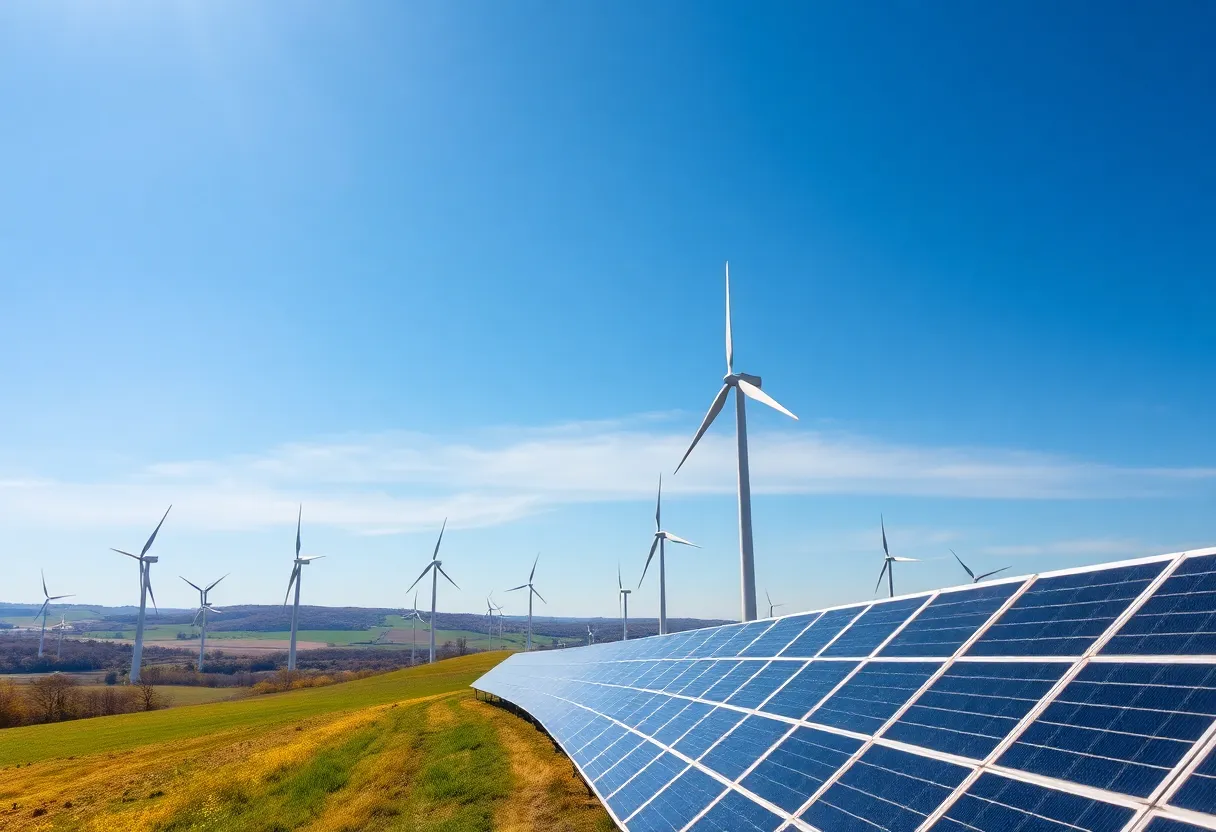News Summary
The recent passage of a U.S. House budget bill threatens to repeal essential clean energy tax credits in Pennsylvania. Leaders warn of job losses and reduced investments critical for clean energy projects, including hydrogen hubs and nuclear power facilities. As Pennsylvania aims to lead in clean energy innovation, the bill could hinder the state’s economic growth and sustainability efforts. The coalition urges lawmakers to reconsider the implications of budget decisions on jobs and investments in the energy sector.
Pennsylvania’s Clean Energy Future at Risk Following House Budget Bill Passage
The U.S. House budget bill, which passed in the early hours of Thursday morning, threatens to dismantle clean energy tax credits critical to the state of Pennsylvania. The legislation jeopardizes job creation, new energy production, and billions in investments, according to a coalition of concerned leaders.
Energy Future PA’s co-chairs, Conor Lamb and Kate Harper, have raised alarms about the potential repercussions of the bill, alleging it threatens tens of thousands of high-paying jobs and critical private sector investments tied to regional hydrogen hub projects. These projects are central to Pennsylvania’s economic future, particularly in the clean energy sector.
The new budget bill aims to repeal key elements of the Inflation Reduction Act of 2022, particularly tax credits that have been vital in promoting clean energy initiatives. This change highlights a major setback in the state’s approach to energy, which is traditionally seen as a leader in powering the nation for over two centuries.
Impact on Job Creation and Investments
The elimination of the hydrogen tax credit could significantly jeopardize the future of upcoming hydrogen hub projects in the region, which could have attracted billions in private investment. These hydrogen hubs are not only crucial for advancing the clean energy agenda but also for providing tens of thousands of jobs in the state. The potential loss of these jobs is a concerning prospect for workers, businesses, and consumers across Pennsylvania.
Furthermore, the bill’s consequences extend to the nuclear sector as well. The repeal of the nuclear production tax credit may hinder efforts to reinvigorate nuclear power facilities, including the restart of the former Three Mile Island Unit 2. The nuclear market plays a vital role in the state’s energy landscape, and losing such incentives could stall progress in this crucial area.
Challenges to Clean Energy Innovation
Alongside the removal of these tax credits, the potential elimination of the U.S. Department of Energy’s Loan Programs Office as part of the budget bill filtering through Congress could represent another detrimental blow to clean energy initiatives. This office has been instrumental in financing innovative energy projects that foster economic growth and sustainability.
Lamb and Harper’s coalition argues that Pennsylvania stands at a crossroads: it can either choose to embrace the future of clean energy, with its accompanying economic benefits and sustainability, or it can retreat from this opportunity. They emphasize the need for both private and public sector investments in the state’s energy future.
Historical Context and Future Opportunities
Historically, Pennsylvania has been a cornerstone of America’s energy production for centuries, contributing significantly to the nation’s energy supply. As the state transitions to newer energy forms, energy leaders believe that Pennsylvania has the potential to lead in the emerging clean energy economy. By fostering policies that support clean energy, the state can continue to thrive while meeting the energy needs of the future.
As the debate around the budget bill develops, Energy Future PA is calling on congressional leaders to recognize the importance of maintaining support for clean energy initiatives. The coalition urges lawmakers to consider the impacts that budgetary decisions have on jobs, investment, and the long-term sustainability of Pennsylvania’s energy infrastructure.
With the future of clean energy in the balance, it is imperative that stakeholders at all levels collaborate to ensure that Pennsylvania does not fall behind in the race toward a sustainable energy future. The outcome of this budget bill may not only influence Pennsylvania’s energy landscape but also set a precedent for energy policies across the nation.
Deeper Dive: News & Info About This Topic
- LVB: House Budget Bill Threatens PA Jobs
- Post-Gazette: Pennsylvania Electricity and Legislation
- MSN: IRA Investments Boost Clean Energy Projects
- Solar Power World: Pennsylvania’s Solar Powered Schools
- Wikipedia: Clean Energy in the United States

Author: STAFF HERE PHILADELPHIA WRITER
The PHILADELPHIA STAFF WRITER represents the experienced team at HEREPhiladelphia.com, your go-to source for actionable local news and information in Philadelphia, Philadelphia County, and beyond. Specializing in "news you can use," we cover essential topics like product reviews for personal and business needs, local business directories, politics, real estate trends, neighborhood insights, and state news affecting the area—with deep expertise drawn from years of dedicated reporting and strong community input, including local press releases and business updates. We deliver top reporting on high-value events such as Mummers Parade, Philadelphia Flower Show, and Thanksgiving Day Parade. Our coverage extends to key organizations like the Greater Philadelphia Chamber of Commerce and United Way of Greater Philadelphia, plus leading businesses in telecommunications, food services, and healthcare that power the local economy such as Comcast, Aramark, and Children's Hospital of Philadelphia. As part of the broader HERE network, we provide comprehensive, credible insights into Pennsylvania's dynamic landscape.





